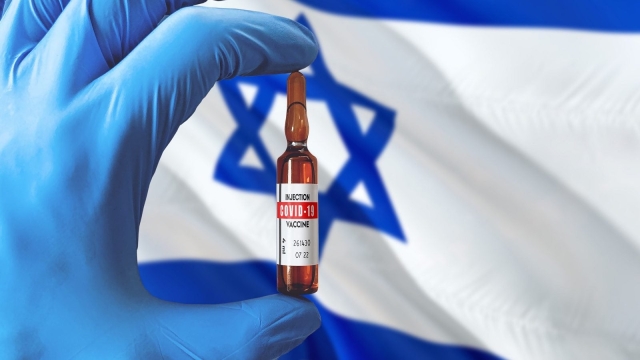In his lengthy report touching many topics released earlier this week, including one reported earlier today about the danger Israel's aging infrastructure poses, Israeli ombudsman Metanyahu Englman slammed the Israeli government for its failed COVID vaccine development program and recommended that the way health emergencies are dealt with be completely reevaluated. Almost a billion and a half NIS were invested in the development of the Israeli vaccine against COVID, which was named “BriLife”.
However, the ambitious plan announced by Prime Minister Netanyahu in February 2020 ended in July 2022 with the closure of the project that was defined as a "national mission" without the vaccine or the antibodies being approved for use. The ombudsman found failures in the decision-making surrounding the development of the Israeli vaccine at the National Biological Institute. The prime minister's decision to task the institute with developing the vaccine was made on the basis of a "partial presentation" of the biological institute.
Report unveils blunders behind failure of Israel's indigenous COVID vaccine: State comptroller accuses Institute for Biological Research of providing inaccurate information regarding the progress and expenses of vaccine development and… https://t.co/LDNsp1hkGh Ynet-Culture
— Jewish Community (@JComm_NewsFeeds) March 14, 2023
Despite the statements of the director of the institute at the time, Prof. Shmuel Shapira, that the institute could develop and produce vaccines and antibodies in a short period of time, the capabilities of the biological institute in the field were limited; and the development process was done without any control. The report further reveals that the original schedule presented at the Institute for Vaccine Development was extended 3.5 times from approximately 11 months to 36 months and the cost jumped from 63 million NIS to 1.4 billion NIS. Englman also found that the project was managed contrary to the institute's procedures, without control processes or risk analysis and "without quality milestones being set for progress between the various stages".
"The urgency that existed at the beginning of the epidemic cannot be a justification for presenting a partial picture of the data, needs, and processes over many months. During this period, 'warning lights' went up in the unit in charge of the institute's control in the Ministry of Defense regarding the exclusion of significant components in the calculation of the required budget and the institute's lack of experience in the matter. Failure to present the overall picture harmed the decision-making process on the issue."
Israel wasted millions on development of COVID vaccine - comptroller#Israel #COVID #Coronavirus #COVID19 @netanyahu @Israel #Pfizer #Moderna @yairlapid @gantzbe
— Agencia AJN (@AgenciaAJN) March 14, 2023
See more: https://t.co/XstLnvtmfw pic.twitter.com/ZctG8QgnbD
The audit also revealed that although the biological institute presented to the prime minister during the outbreak of the pandemic their capabilities in developing a vaccine, the institute was not at all included in the national plan to deal with the pandemic and was not tasked with responding to outbreaks of following epidemics within the framework of the national plans.
The report further recommends that the Ministry of Defense examine "if there is a valuable contribution of the Institute in the State of Israel's dealings with a pandemic in the future."
Israel's State Comptroller says the country wasted millions of shekels developing a Covid vaccine, but the scientists involved say the accusations are unfair
— i24NEWS English (@i24NEWS_EN) March 15, 2023
✍️ @MatthiasInbarhttps://t.co/Lo7hGZHK4l pic.twitter.com/seM4RB9jv1
"Crisis management requires decision-making and the rapid execution of actions under conditions of pressure and uncertainty. At the same time, the urgency that existed at the beginning of the pandemic cannot be a justification for the deficiencies that existed during the period after February 2020, when the development task was assigned to the institute."


